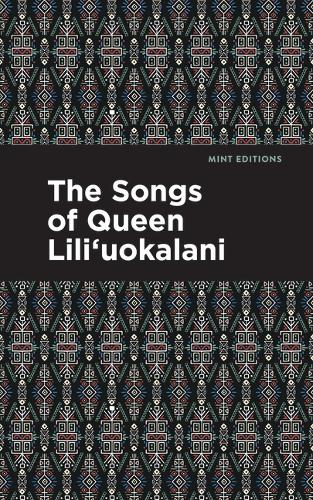
The Songs of Queen Lili'uokalani
(Paperback)
Available Formats
Publishing Details
The Songs of Queen Lili'uokalani
By (Author) Lili'uokalani
Contributions by Mint Editions
Mint Editions
Mint Editions
11th December 2024
United States
Classifications
Physical Properties
Paperback
198
Width 127mm, Height 203mm
Description
To compose was as natural to me as to breathe; and this gift of nature, never having been suffered to fall into disuse, remains a source of the greatest consolation to this day.[] Hours of which it is not yet in place to speak, which I might have found long and lonely, passed quickly and cheerfully by, occupied and soothed by the expression of my thoughts in music.
Queen Liliuokalani, the last and only queen of the Hawaiian Kingdom, was an incredibly gifted musician and composer. A student from a young age, Liliuokalanis legacy as a songwriter is felt even today with her most well-known composition, Aloha Oe becoming the National Anthem of Hawaii and a cultural call for Hawaiian sovereignty.
Featuring over a dozen unique compositions either written or translated by Queen Liliuokalani, The Songs of Queen Liliuokalani is a compliation of Her Majesty Queen Liliuokalanis handwritten musical compositions including the aforementioned, Aloha Oe, The Queens Prayer, and "Ka iwi Nani, among many otherspulled straight from the Hawaii State Archives.
Author Bio
Liliuokalani (1838-1917) was the last and only queen of the Hawaiian Kingdom. Born in Honolulu to a prominent chief and chiefess, Liliuokalani was adopted and raised by a chief advisor of King Kamehameha III. Liliuokalani was baptized as a Christian and educated at the Royal School. Declared eligible to succeed to the throne, Liliuokalani married John Owen Dominis, an American who was later appointed Governor of Oahu. After her brothers death in 1891, Liliuokalani ascended to the throne, marking the beginning of a brief reign with which she would attempt to create a new constitution restoring power to the monarchy and granting voter rights to the poor and disenfranchised. In retaliation, and with the help of Hawaiian oligarchs, American led forces overthrew the Hawaiian Kingdom in 1893, bringing an abrupt end to Liliuokalanis rule. In 1895, following the failed Wilcox rebellion, Liliuokalani was placed under house arrest and forced to abdicate, leading to the annexation of Hawaii by the United States in 1898. During her imprisonment, Liliuokalani wrote Hawaii's Story by Hawaii's Queen (1898), an autobiography detailing her life and appealing for her reinstatement as queen. In addition, while she was Princess of the Hawaiian Kingdom, Liliuokalani wrote the popular song Aloha Oe, (1878) now a symbol of Hawaiian sovereignty and identity.
